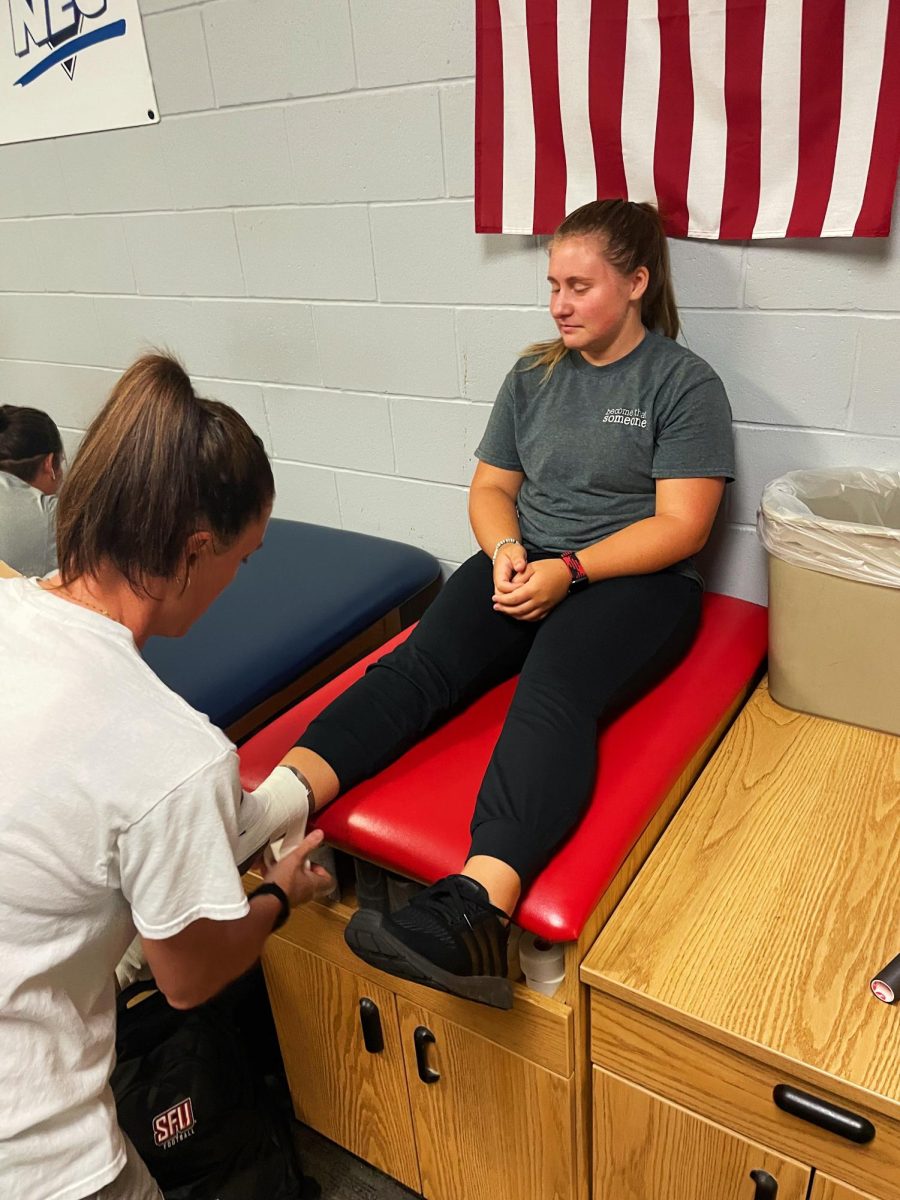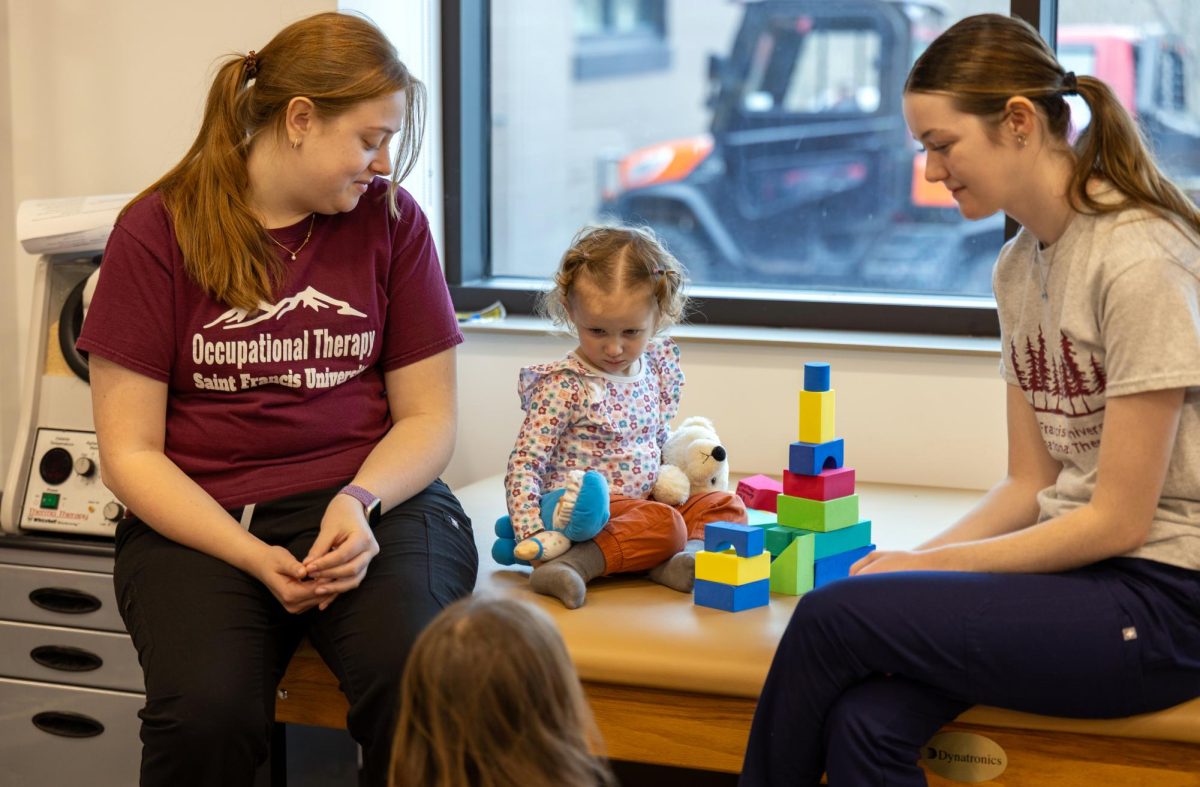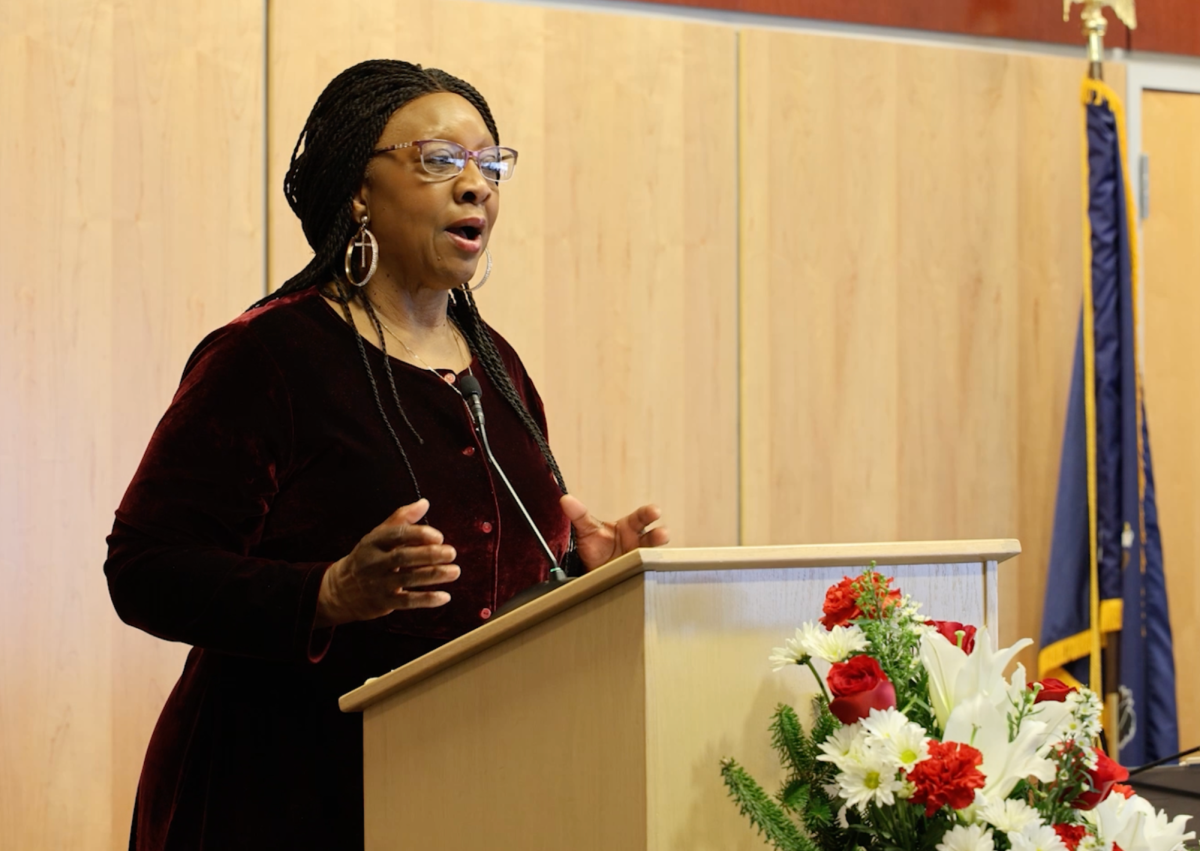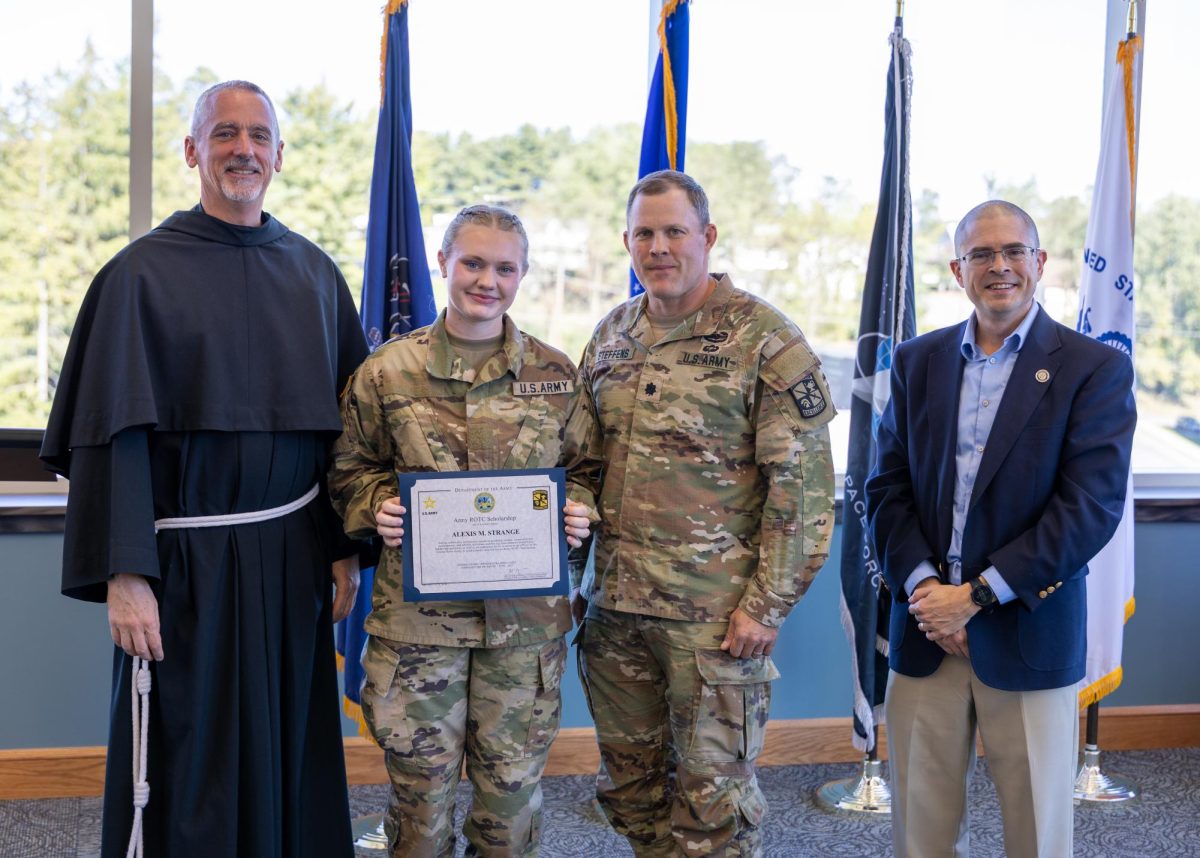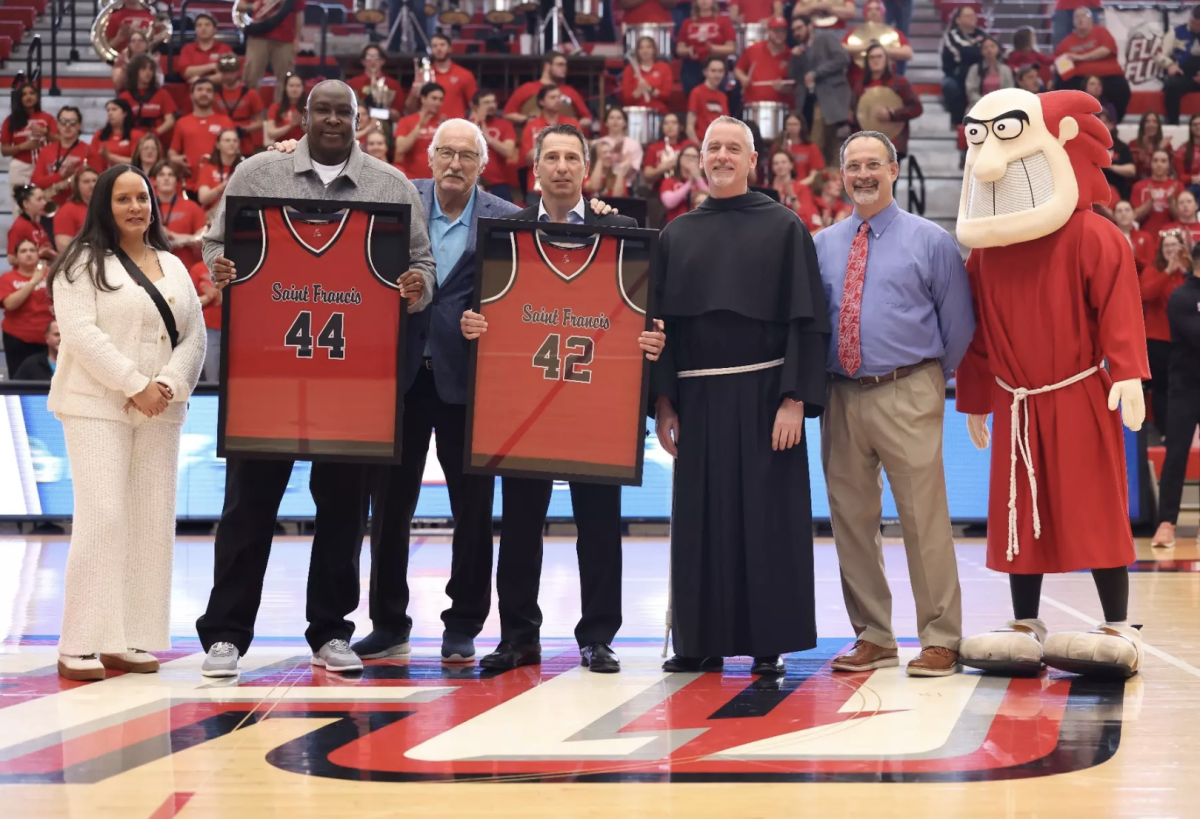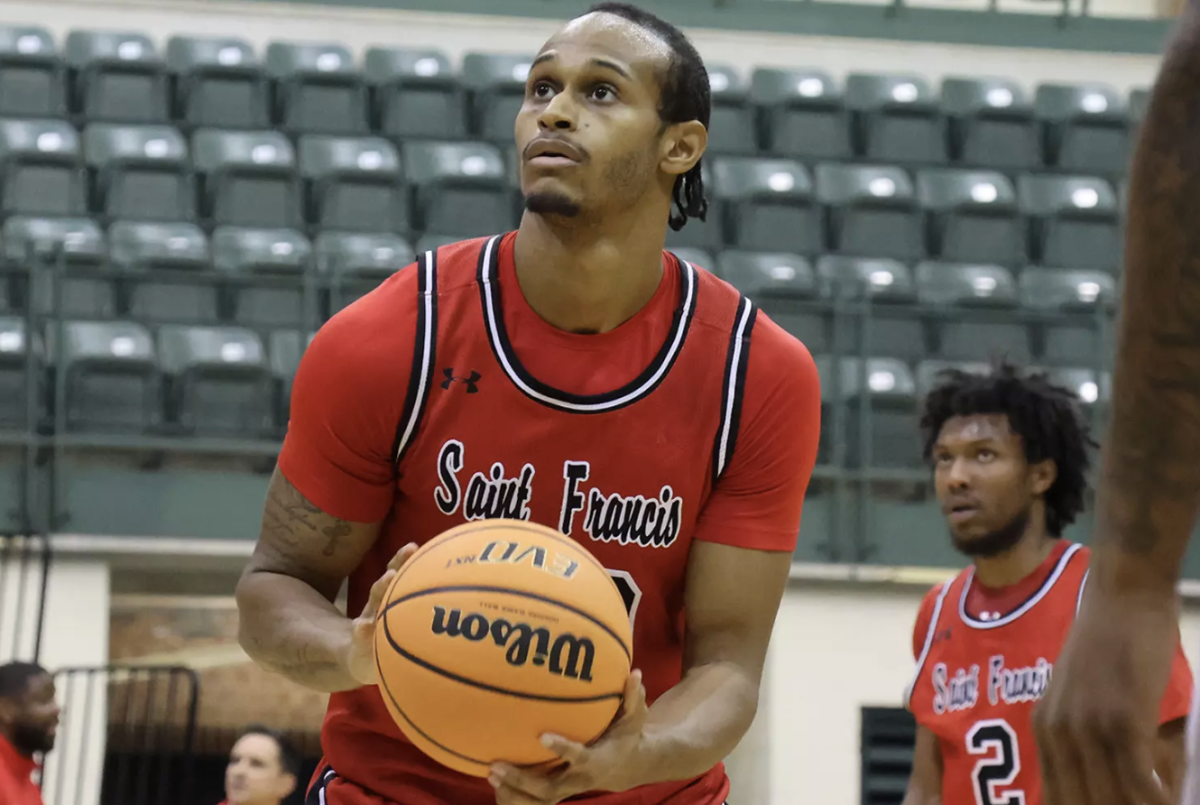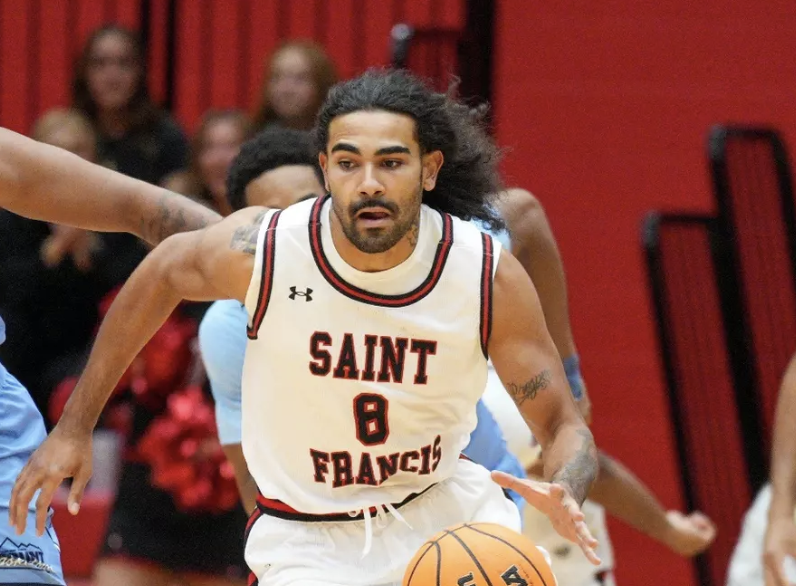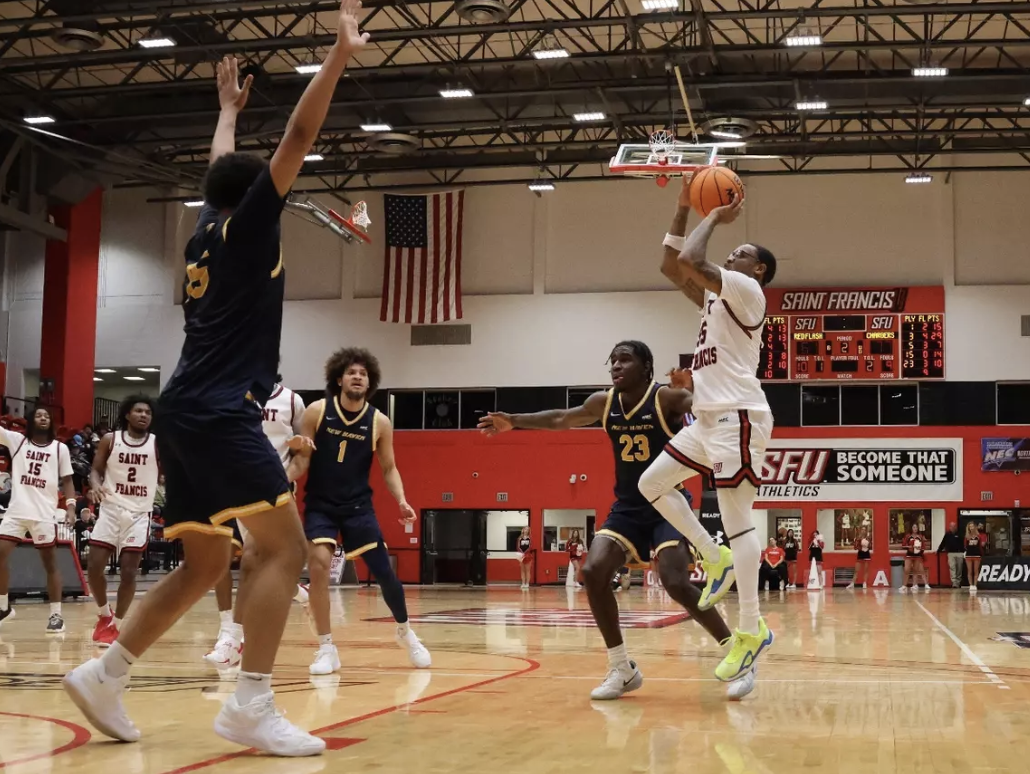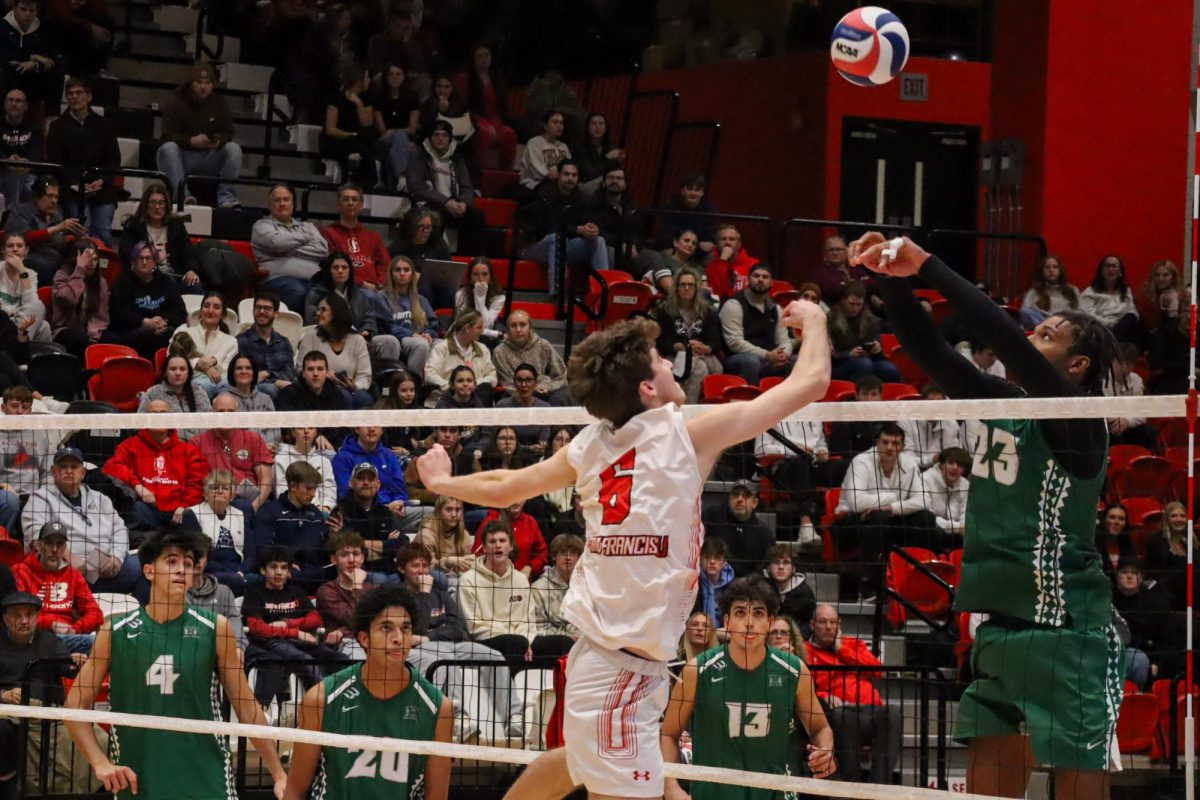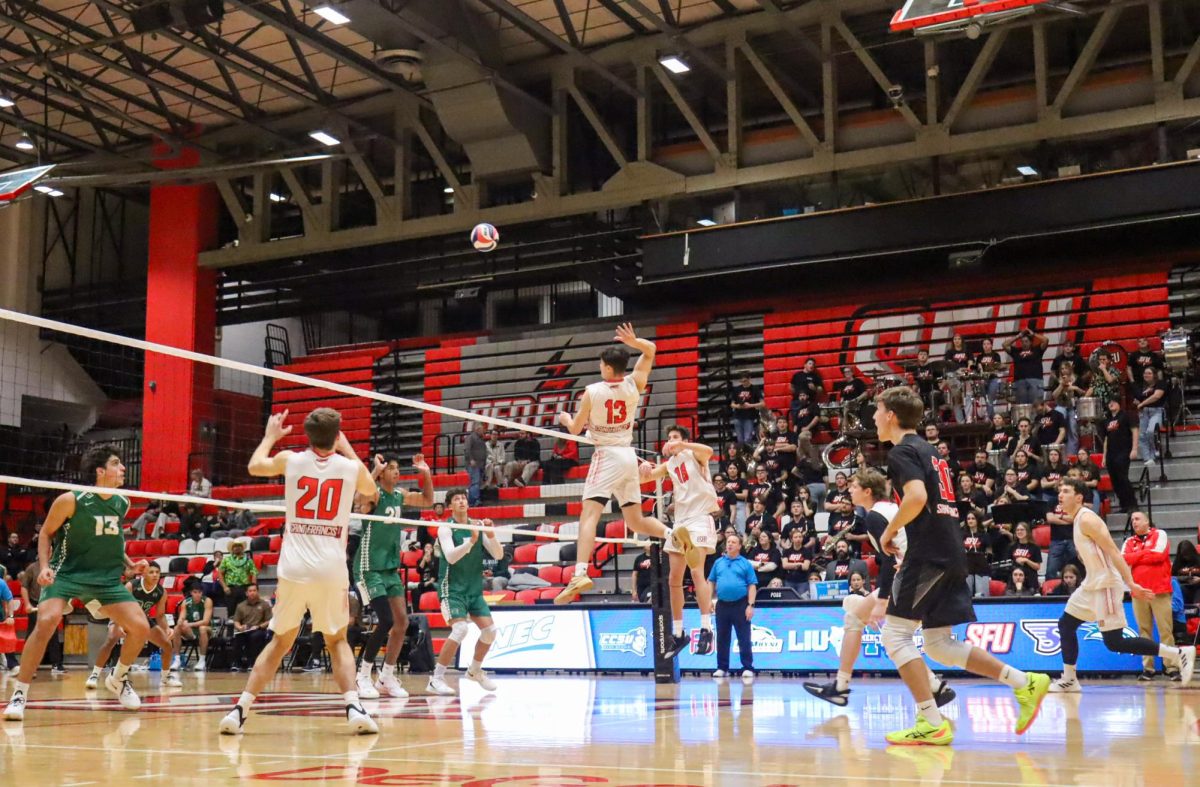When Hailey Prestash felt a sharp pain in her hip during cross country practice last fall, she knew that her athletic career would be taking an unknown turn.
After being evaluated by a member of the Saint Francis University Athletic Training staff and referred to a physician for imaging, Prestash was diagnosed with a stress fracture in her femur.
This injury not only impacted her ability to run, but also forced her to use crutches for the next six weeks.
While the Phillipsburg native is no stranger to the pain that comes with being a Division I student-athlete – she boasts a personal-best time of 2:23 in the 800-meter run – Prestash, like many other athletes facing an injury, found herself struggling both mentally and physically.
“My injury was challenging because it occurred at the beginning of my senior season and I had worked really hard over the summer to get ready for cross country,” said the Physical Therapy graduate student.
“It was extremely difficult – mentally – to see all my hard work get flushed down the drain and to watch my teammates run, compete and travel throughout the year.”
Like Prestash, SFU junior swimmer Maddie Dando also found herself sidelined due to injury. The backstroke specialist underwent surgery last April to repair a torn labrum and bone abnormality in her shoulder.
In addition to competing on the Red Flash swimming team, Dando also serves as SFU’s campus captain for the “Hidden Opponent,” an advocacy group that raises awareness for student-athlete mental health.
“My recovery process so far has been a lot more challenging than I anticipated,” said the junior Physician Assistant Science major. “It’s mentally and physically exhausting for a part of your body to not work properly.
“Some days rehabilitating has been great, while others have been awful.”
Members of the SFU Athletic Training staff are very familiar with the different ways that injuries can affect student-athletes. Head Athletic Trainer Kosie Shepherd-Porada (pictured above) said that she and her team utilize a multifaceted approach with student-athletes.
“While SFU athletic trainers collaborate with the team physicians and on-campus physical therapists to guide physical treatment, we are always diligent to check-in on athletes’ mental health and refer them to the appropriate resources, if necessary,” said Shepherd-Porada.
“Going from being an athlete who practices, lifts and competes to getting injured and becoming nearly sedentary is a huge lifestyle change.”
Prestash worked closely with the SFU’s athletic trainers as her injury healed and she was slowly reintroduced to walking, lifting, cross training and finally, running.
Prestash was grateful that the staff kept her within her physical limits to ensure healing and that they stayed in constant contact with her coach throughout her recovery period.
She is looking forward to competing in SFU’s 2023 cross country season, which begins with a home meet on Friday, Sept. 1.
Although not fully cleared yet, Dando is hopeful to return to competing with the swim team in October.
“Mental health struggles, especially those stemming from an injury, can manifest differently across athletes,” said Shepherd-Porada, who works with SFU student-athletes on the cross country, track and field, lacrosse, football and water polo teams.
“Being injured can oftentimes make an athlete’s mood low. However, it is important that we are cognizant of when this low mood is a sign of depression, for example, and then emphasize the need for clinical mental health intervention.”
Both Prestash and Dando have learned to appreciate the highs and find ways to work through the lows during recovery.
“The athletic trainers and physical therapists are amazing,” said Dando. “The staff provides one-on-one attention and care, and that is hard to find at other schools. Most importantly, they see you as more than just an athlete.”
“I love how (SFU) athletic training is not focused on just healing injuries, but also injury prevention,” said Prestash.
